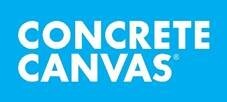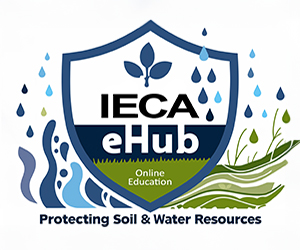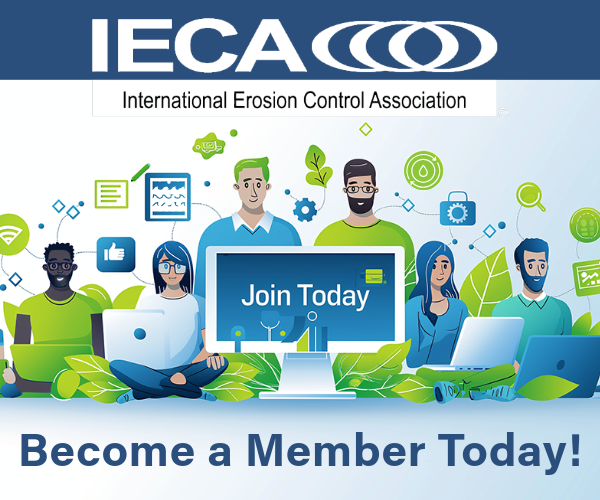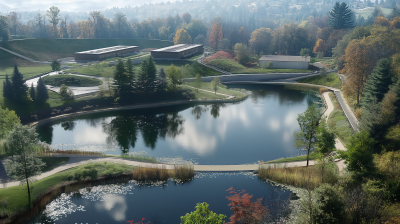

Product Showcases
This page is a collection of product showcases that were created by IECA Partners. If you are interested in learning about other company's products feel free to check these out. Our Product Showcases are free to IECA Members and Nonmembers and provide Professional Development Hours that may or may not be accepted by your certifying body as approved continuing education. If you are interested in sharing one of your products, please contact, mark@ieca.org.
-
Includes Credits
Flocculants are powerful tools that have been used for decades to control erosion, stabilize soil, and remove harmful contaminants from water. Flocculant treatments can meet very low discharge limits, allowing sites to stay in compliance, meet regulations and improve stormwater quality and clarity. Applied Polymer Systems introduced flocculants to the erosion and stormwater industries in the 1990s, drawing from decades of research and use in mining effluent treatment. Anionic polyacrylamide is the most widely accepted and commonly used flocculant due to being both safe for aquatic life, and highly effective.
LET'S TALK FLOC: A Three Part Flocculant Series from the Company that brought Flocculant (Floc) Logs and Polymer Enhanced BMPs to the Industry
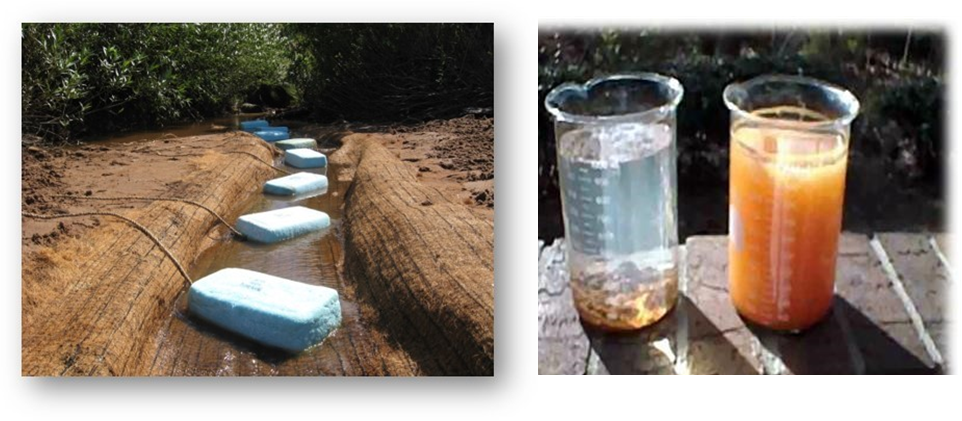
Presented by: Seva Bray, Kyla Wood, PhD and Eddie Snell
Level: Beginner | Intermediate | Advanced
Duration: 2 hours
Type of Course: On-DemandFlocculants are powerful tools that have been used for decades to control erosion, stabilize soil, and remove harmful contaminants from water. Flocculant treatments can meet very low discharge limits, allowing sites to stay in compliance, meet regulations and improve stormwater quality and clarity. Applied Polymer Systems introduced flocculants to the erosion and stormwater industries in the 1990s, drawing from decades of research and use in mining effluent treatment. Anionic polyacrylamide is the most widely accepted and commonly used flocculant due to being both safe for aquatic life, and highly effective.
PAM use is rapidly expanding across the US and world thanks to its safety for environmental applications and effectiveness at targeting and removing difficult and common pollutants like clay, sediments, and metals. In our Let’s Talk Floc Part 1 webinar we detailed the movement and growth of PAM use for erosion and sediment control from its introduction in the 1990s to its widespread and growing adoption in the US today. We also spoke about the important factors that influence how we use flocculants safely and effectively. In Let’s Talk Floc Part 2, we will build on this important information and focus on case studies and examples of how PAMs were, and currently are being utilized to successfully manage erosion, sediment, metals, and stormwater on multiple projects across the United States and Canada. Join Applied Polymer Systems, the company who brought flocculant technologies to this industry 25 years ago, in the second part of our two series Let’s Talk Floc webinar, as we cover how to effectively, safely, and efficiently use flocculants in the field to meet stormwater and erosion and sediment control goals and requirements.
Thanks to years of education and concerted effort by universities, companies, and organizations like the IECA, flocculant use has evolved from sparse use of what many deemed mysterious “fairy dust”, to widespread adoption and a push towards standardized flocculant training, use and application. With many states recently adopting, preparing to adopt, or considering adopting anionic polyacrylamide into their toolboxes (i.e. pre-approved flocculant lists, QPLs/APLS, or erosion control and stormwater manuals) interest in flocculants and demand for training and information has reached levels never seen before in our industry. Despite expanded use and interest, confusion and questions still exist, and education is needed to ensure flocculants are used safely and effectively. Join Applied Polymer Systems, the company who brought flocculant technologies to this industry 25 years ago, as we cover how to effectively, safely, and efficiently use flocculants to enhance traditional best management practices to meet stormwater and erosion and sediment control goals and requirements.
In the first parts of our Let’s Talk Floc webinar series we provided participants a foundation on how to select safe and effective flocculants and polyacrylamides and introduced their many uses for improving erosion and sediment control and stormwater quality. In the second part of this series we built on this information and focused on completed projects including robust dewatering and mainstream theme park applications to provide examples of how PAMs were, and currently are being utilized to successfully manage erosion, sediment, and water clarification. In our third and final Let’s Talk Floc Webinar we will use this foundation and apply the acquired skills and knowledge to work through projects that have a need for flocculant use from start to finish. Participants who have not yet had the opportunity to view Let’s Talk Floc 1 or 2, but have a basic understanding of how polymer flocculants work, and their various E&SC and stormwater applications can still benefit from this upcoming presentation and learn the process of proper flocculant planning and use. This interactive webinar will use example sites and give an opportunity for participant participation to work through the flocculant process including planning, regulations, sampling for product matching and selection, application, troubleshooting, maintenance, and disposal.
Part One Learning Objectives:
- Understanding the basics of flocculant technologies and how to select safe and effective flocculants for treatment systems
- Understand what anionic polyacrylamide is, how it works, and why it is the standard flocculant used for erosion and sediment control and stormwater treatment in the industry
- Gain a basic knowledge and understanding of the steps needed to apply, maintain, and troubleshoot flocculants in field applications
- Recognize how traditional BMPs may be enhanced using anionic PAM to improve sediment control and water treatment
Part Two Learning Objectives:
- Review how to select appropriate flocculants for projects based on specific project goals and site characteristics.
- Learn components needed to plan and implement effective PAM treatments for Erosion and Sediment Control and Stormwater Management.
- Understand common management and use requirements for PAM applications through real world examples and case studies of PAM treatments.
Seva Iwinski Bray
Vice President
Applied Polymer Systems
Seva Iwinski Bray is an environmental scientist, Vice President of Applied Polymer Systems, and a co-founder of IY Progen Systems. She has over 15 years of experience in erosion and sediment control and stormwater management utilizing flocculant treatments. She holds a BS in Bioenvironmental Science from Texas A&M University. Her most common industry roles include technical training to educate companies, agencies, engineers, and other industry professionals on flocculant treatments that are safe for use in the open environment as well as assisting in continual research and advancements for polymers in E&SC and water clarification.
Eddie Snell
Technical Specialist
Eddie Snell works for Applied Polymer Systems, Inc. and has over 40 years of experience working in the watershed protection, erosion, sediment control, and stormwater industries. Prior to working for Applied Polymer Systems, Inc, Eddie worked for the Walt Disney World Company and the Reedy Creek Improvement District (local government) in the environmental management and watershed programs division. He holds a four-year degree in environmental science. His passion in life is the immediate and future protection of water resources.
Kyla J. Iwinski-Wood, PhD
VP Research and Development
Applied Polymer Systems, Inc.
Kyla Iwinski-Wood is an environmental toxicologist with a passion for clean water and applying science to find real world solutions. She works for Applied Polymer Systems where her primary roles are researching new or improved polymer uses and technologies as well as assisting with technical training, support, and presentations. She worked as a consultant for APS beginning in 2007 until accepting a permanent position as head of Research and Development in 2016. She holds a PhD from Clemson University where her doctoral work focused on water resource management and ecotoxicology. She also has a master’s degree in biology from Northern Michigan University where she investigated the feasibility of polyacrylamide for removing nuisance and toxic algae from freshwater.
Each webinar in this series is worth One (1) Professional Development Hour. A total of Two (2) Professional Development Hours are available in this series.
-
Register
- Non member - Free!
- Professional member - Free!
- Professional Plus member - Free!
- Professional Plus Org member - Free!
- Student member - Free!
- Young Professional member - Free!
- Emeritus member - Free!
- Discounted Professional member - Free!
- Australia Member - Free!
- Australia Non-Member - Free!
- Australasia Professional Plus - Free!
- Australasia Professional Plus Org - Free!
- Australian Student - Free!
- New Zealand Member - Free!
- New Zealand Professional Plus Org - Free!
- New Zealand Professional Plus - Free!
- New Zealand Student - Free!
- More Information
-
Includes Credits
Concrete Canvas Ltd announced its expansion into the United States of America with the establishment of Concrete Canvas USA inc. in March 2021. Concrete Canvas USA Inc. opened its first office in Houston, Texas, led by Interim CEO/General Manager Melanie Fuhrman. In this session, Business Development Manager for the East Coast, Melanie Fuhrman, will introduce Concrete Canvas® GCCMs to the American market, discussing the products and their applications.
Build to Last: Innovations in Hard Armor for Erosion Control & Containment using Geosynthetic Concrete Composite Mats (GCCMs)

Presented by: Melanie Fuhrman, Business Development Manager | Concrete Canvas
Level: Beginner | Intermediate
Duration: 1 hour
Type of Course: On-DemandConcrete Canvas Ltd announced its expansion into the United States of America with the establishment of Concrete Canvas USA inc. in March 2021. Concrete Canvas USA Inc. opened their headquarters in Houston in 2021 and is supported by their parent company Concrete Canvas UK, which has been supplying materials to the international erosion control industry since 2009. In this session, Melanie Fuhrman, Interim CEO/General Manager will introduce Concrete Canvas® GCCMs to the American market, discussing the products and their applications.Melanie Fuhrman
Business Development Manager
Concrete Canvas
Melanie Fuhrman is the Interim CEO/General Manager and Business Development Manager (EAST) for Concrete Canvas USA. She has over 20 years’ experience in the construction, erosion and geosynthetic industry. She has written articles for several trade magazines and has been a keynote speaker at several industry meetings such as ASCE and IECA. Melanie holds a Bachelor of Science degree from Virginia Tech in Civil Engineering and an MBA from Liberty University. Past work experience includes engineering, construction, federal, and manufacturing.
This course is worth One (1) Professional Development Hour. To claim your credit select the 'contents' tab and select 'claim credit' upon completion of the program.
-
Register
- Non member - Free!
- Professional member - Free!
- Professional Plus member - Free!
- Professional Plus Org member - Free!
- Student member - Free!
- Young Professional member - Free!
- Emeritus member - Free!
- Discounted Professional member - Free!
- Australia Member - Free!
- Australia Non-Member - Free!
- Australasia Professional Plus - Free!
- Australasia Professional Plus Org - Free!
- Australian Student - $15
- New Zealand Member - $15
- New Zealand Professional Plus Org - Free!
- New Zealand Professional Plus - Free!
- New Zealand Student - $15
- More Information
-
Register
-
Includes Credits
Available on-demand: Join us and Trexiana for an insightful and engaging conversation about the benefits of building with a Vegetated MSE Solution as we continue the shift into a carbon neutral future.
Building for the Future - Shifting to a Sustainable and Permanent Vegetated MSE System for Water, Wall, Slope and Erosion Challenges

- Presented by: Mike Callewaert, CEO and President | Trexiana
Level: Beginner | Intermediate | Advanced
Duration: 1 hour
Type of Course: On-Demand- This event offers 1 Professional Development Hour and is free for all to attend. Participants will gain an understanding of the Why’s, What’s and How’s of transitioning into a more innovative, flexible, permanent and environmentally positive alternative for our growing global issues in slope stabilization, erosion control, retention, detention and waterways. A variety of fascinating Flex MSE case studies from North America, the UK and New Zealand will be highlighted.
This webinar is offered as a complimentary session at no cost.
Course Reviewed: June 2024
Platinum Event Sponsor

Mike Callewaert
CEO and President of Trexiana - manufacturer of Flex MSE
Mike Callewaert, the CEO and President of Trexiana - manufacturer of Flex MSE, is a Geomodular Construction Specialist. He helps Engineers, Designers and Construction experts update traditional wall system projects with a more sustainable, permanent and cost effective approach. Before founding Trexiana, Mike worked in the fields of Business Consultation, Technical Engineering and IT, helping corporations and start-ups achieve success. Mike now trains and coordinates a brilliant global Team of focused Geomodular gurus including Vegetation, Engineering, and Construction professionals on the FlexMSE system. Mike is a father of three and when he isn't traveling the globe promoting Flex MSE helives and works in beautiful British Columbia, Canada.
At the completion of this course you will receive 1 Professional Development Hour of credit. For any questions on continuing education credit, please contact IECA Education at education@ieca.org
-
Register
- Non member - Free!
- Professional member - Free!
- Professional Plus member - Free!
- Professional Plus Org member - Free!
- Student member - Free!
- Young Professional member - Free!
- Emeritus member - Free!
- Discounted Professional member - Free!
- Australia Member - Free!
- Australia Non-Member - Free!
- Australasia Professional Plus - Free!
- Australasia Professional Plus Org - Free!
- Australian Student - Free!
- New Zealand Member - Free!
- New Zealand Professional Plus Org - Free!
- New Zealand Professional Plus - Free!
- New Zealand Student - Free!
- More Information
-
Register
| Access Date | Quiz Result | Score | Actions |
|---|
Login Issues?
If you are having login issues, be sure you have a country in your IECA.ORG account profile. Continued issues? Email education@ieca.org for assistance.
IECA News Room
Recording is Prohibited
Attendees are never permitted to record any of IECA education events including, but not limited to, online courses, webinars and live presentations.



